The Case For Live Workshops
By Bruce Griffiths M.S.
Our long pandemic nightmare necessitated isolation and made ZOOM a verb with a new meaning. It also precipitated an accelerated and permanent shift to remote/hybrid work. Remote work, and remote meetings, do have advantages for individuals and organizations. If we can work remotely, we do like the conveniences (no commute, control of the environment, independence, etc.), plus now both individuals and organizations can apply/recruit in a global talent space (I can live where I want and I can recruit from a much larger talent pool).
Leadership IS about relationships. That means leaders need emotional competence in fundamental Polaris ® skill sets like Active Listening, Communicativeness, Sensitivity, Relationship Building, and Conflict Management. These “soft skills” are best learned/practiced in context, i.e., in actual interactions with others. Both the AI revolution, in which human creativity and emotional intelligence are more valued, and the increased need for remote team leaders to be better at building relations, create this heightened need for these interpersonal skill sets to be learned and practiced through in-person events.
I’ll add a personal positive for in-person events; they are more FUN! All the interactions during breaks and lunches, plus the after-workshop happy hours/dinners definitely drive more positive reactions, but also provide more opportunities for teacher-student interaction (better learning) plus increased networking. So, when scheduling training remember that what you’re training (e.g., interpersonal skills) and how you’re training (a transferable context) should help guide whether ZOOM, i.e., remote, or live training is truly better for learning.
To learn more about OSI’s industry leading competency library, Polaris®, please contact Crystal Matsuura at cmatsuura@orgsysinc.om or 858.455.0923.


